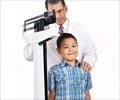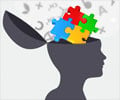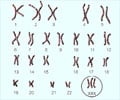Diagnosis of Attention Deficit Hyperactivity Disorder (ADHD)
It is very difficult to make a correct diagnosis of ADHD. The symptoms unfold with time under different settings.
The symptoms of ADHD may vary with the settings, in other words, the child my be hyperactive at home but may be inattentive in school. A restless or a hyperactive child may gain the attention of his teachers or family members, but not a child who is inattentive, lazy or dreamy. It is therefore imperative that a correct diagnosis is made to manage the problem.
Each child is different and has a different energy level, temperament and personality. It is therefore a difficult task to identify ADHD in children. Sometimes a parent might identify an offspring with the condition. At other times a teacher is able to single out a child affected by ADHD. Most often the condition flares and affects functioning in the precincts of the school, amongst fellow students and peers.
On suspecting ADHD, the parent or the teacher may choose to discuss the issue with health professionals who are experts in dealing with ADHD.
They include :
- Child Psychiatrist
- Child psychologist
- Neurologist
- Paediatricians
- Counsellors and clinical social workers
Each of these professionals differ in their experience in dealing with individuals affected by ADHD. It is therefore important to identify and select health experts according to one's requirement.
There are several factors that trigger ADHD - like behavior. They are -
- Death of a loved one
- Parents' divorce
- Learning disability
- Anxiety/depression
- Middle ear infection
- Undetected seizures, such as those of the temporal lobe
- Brain disorder caused by medical conditions
These conditions must be ruled out before ADHD is diagnosed.
The diagnosis of ADHD is carried out by piecing together information gathered from various sources. The medical record along with the school record of the child are scrutinized by the health experts to understand any underlying medical condition, such as lack of hearing or problem with vision. They try to understand if there is an element of stress at home or at school. They also try to comprehend the methods that parents or teachers adopt when dealing with the child.
Most importantly, the child's self control will be assessed in situations where it is most demanding. The child's current behaviour is studied and compared to that of children of the same age. The mental health and social adjustments skills of the child will be assessed. Intelligence tests will be conducted on the child.
With the help of the information secured, the specialists put the pieces of the 'jigsaw puzzle' together. A profile is created and this is then used to understand the behavioural pattern of the child. If the symptoms of ADHD is long-standing and significant, then a diagnosis is made.
If an adult has had a childhood-onset of the disease and if the symptoms are persistant through adolescence and adulthood, diagnosis of ADHD is established. Only an expert will be able to provide an accurate diagnosis. A history of the individual's childhood behavior, a physical examination, mental health evaluation tests along with interviews of close ones will help to diagnose ADHD. Many adults with ADHD suffer from anxiety, depression and learning disorders as well.
A correct diagnosis clears the air and generates answers to long-standing queries about the individuals behavior. It paves the way for support to the affected individual.


























